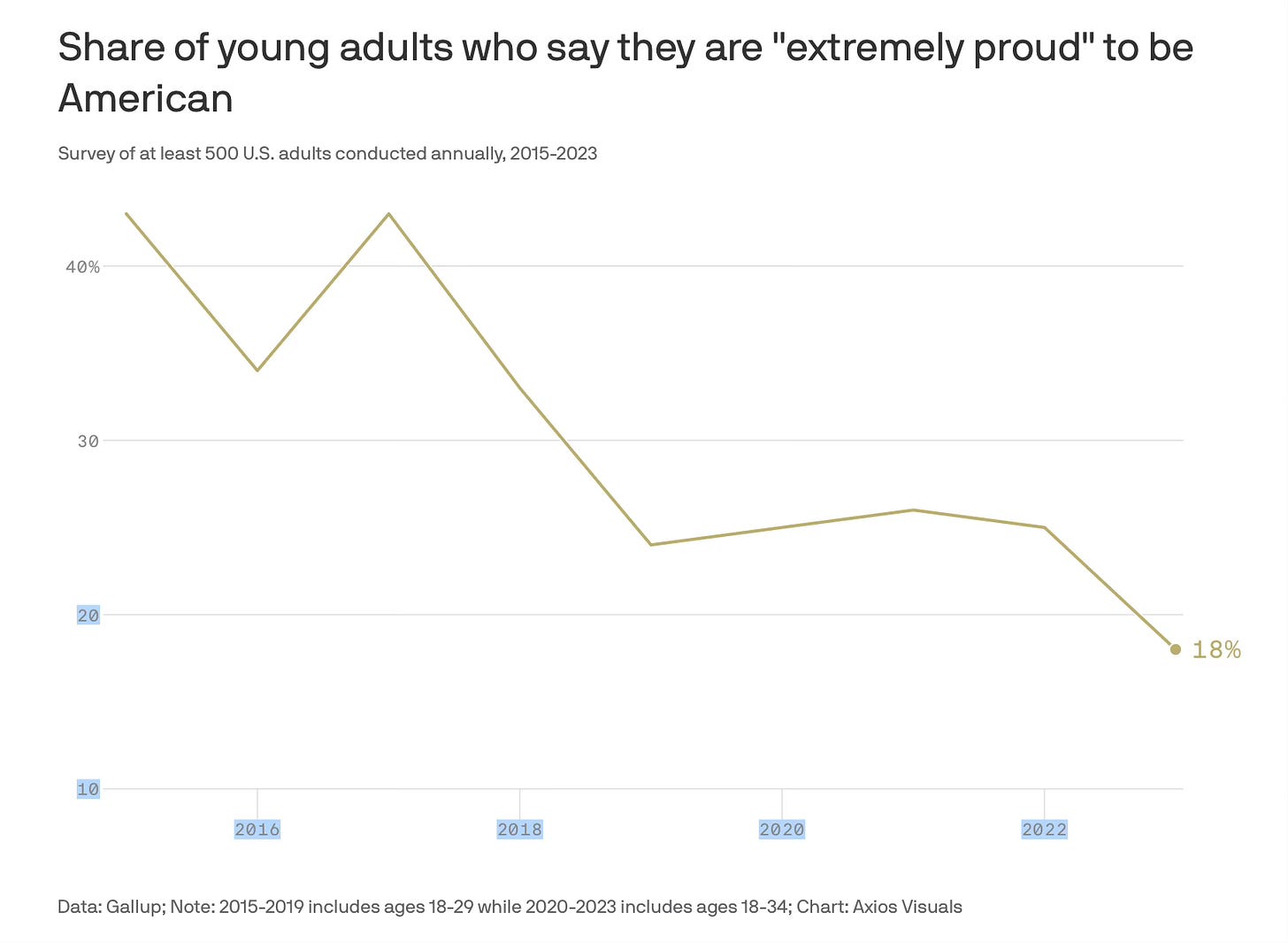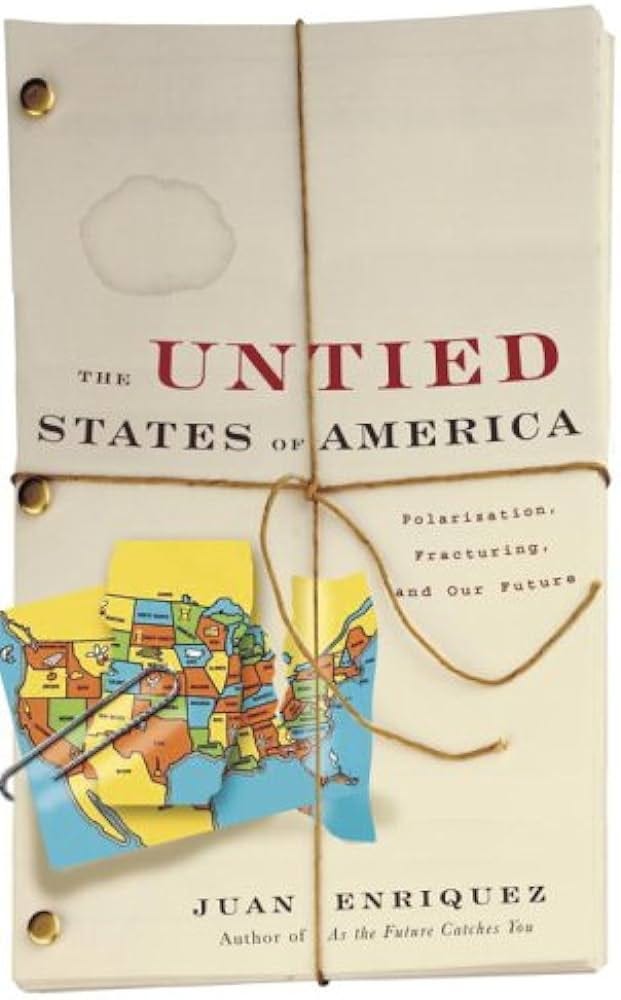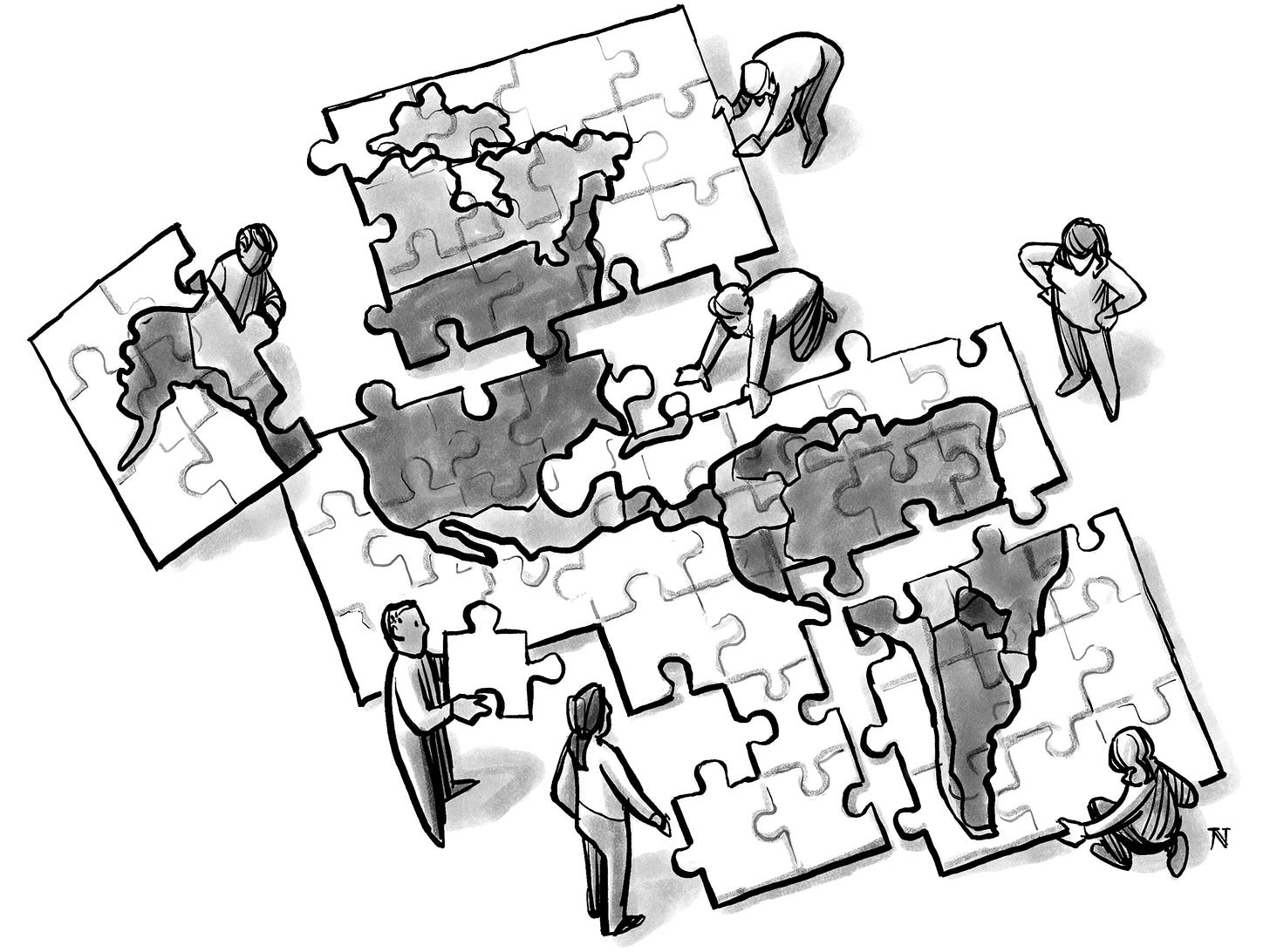The growing lack of patriotism and national identification among the young is all about negative experiences and poor government performance
Blaming it on "wokeism" -- much less teachers -- is complete nonsense
We’ve been treated to polls (above) showing how young Americans don’t exactly proudly self-identify as Americans — compared to previous generations, and that worries us oldsters for very solid reasons.
When younger generations lose faith in the national brand, that brand can easily fall apart. From America’s New Map;
Middle-aged Whites fearing “replacement” are not the problem; disillu- sioned youth are the problem. Again [Juan] Enriquez: “Grandchildren may decide it is not worth the effort to defend the same symbols, beliefs, flags, and border of their grandparents.” That is because “citizenship is buying into a national brand”—one so attractive that it commands unreasonable loyalty and even sacrifice.
In serious decline now, America’s brand seems more occupied with its past than its future. Our patriotism, always forward leaning, is recast as a litany of grievances. By pathetically aping Old World nationalism, we denigrate—even deny—our unique hemispheric civilization here in the true West. We should have more pride in who we are, what we have accomplished, and why we still matter to this world.
Americanism as a faith strikes many of our youth as a generational con job perpetrated by their selfish, self-centered elders. Therein lies the danger, says Enriquez, because “when brands promise one thing and deliver another . . . they lose support. Old brands are removed from the supermarket shelf, old countries are removed from maps.” Compare the life experiences of today’s youth with those enjoyed by the Boomers and ask yourself, Will our flag command their allegiance in the decades ahead? Will we add stars or lose them?
[On Enriquez, see his brilliant book:]
I’ve been waiting on this piece for a while: "doomsday stress.”
Whenever I address this issue, I always say two things: First, look at these younger generations’ life experiences to date and tell me why they should be optimistic. Second, look at our government’s performance over the same time period and — again — show me where that creates optimism about the future. Put the two together, along with the financial pressures younger generations feel with negative wealth (owing too much, earning too little), and there is your lack of desire to have kids. I know that’s simplifying it but it’s not far off. People having kids is the ultimate optimism.
This piece on “doomsday stress” provides a lot of fodder on the experience side:
Just think about the world from a Millennial’s perspective. Think about what Millennials have witnessed. Born between 1981 and 1996, Millennials have experienced highlights like:
The Columbine High School massacre (occurred in 1999 and marked the start of the modern mass shooting phenomenon)
The terrorist attacks on September 11, 2001
The Iraq and Afghanistan wars
The financial crisis of 2008
The subsequent great recession
The rise of ISIS, the collapse of Syria
The subsequent refugee crisis in Europe
Hurricane Katrina, Hurricane Harvey, Hurricane Maria, among others
The Covid-19 pandemic with over a million U.S. deaths
The politicization of healthcare
The rise of climate change catastrophes
The ongoing war in Ukraine
Now the war in Gaza.
If what’s past is prologue, it is easy to see why Millennials are on edge.
I have two Millennials and four GenZs, and they would — to a person — have plenty to add to these, particularly our three immigrants of color (notice the non-mention of George Floyd and the resulting BLM protests — which they and I marched in). My four girls would add in Dobbs and my two non-straight kids would definitely point to rising anti-LGBTQ sentiment from the Right. In short, they see rights being curtailed rather ominously, with the notion of a Trump return to the White House portending plenty more.
Which gets me to government performance.
There’s definitely zero nostalgia for Bush and his “forever wars,” but serious nostalgia for Obama’s boring (no real scandals) progressivism. Trump was a nightmare whose erratic behavior tended to freeze many from planning for the future while motivating them to fight back — neither impulses lending themselves to patriotism but more so to dread, depression, and escapism.
As for Biden, that’s a big meh. Gotta respect his efforts on climate change — compared to his predecessors, but almost zero excitement about a man clearly too old to be president (along with rapidly fading Trump).
Then look more generally at what Washington is selling to our youth as to our collective future:
Never-ending hot war with Russia (albeit by proxy)
Never-ending support for Israel in its brutal conflict with Hamas
Never-ending Cold War with China, who must be opposed the world over
Climate denialism
Demonization/otherization of immigrants, the non-straight, people of color
“Big Lie” and “Great Replacement” manias threatening our democracy.
Who wants to sign up for that military? Who’s willing to gun them down at the border? Imprison women for seeking abortions?
These are not roles — nor futures — to which young people are attracted.
So they tune out, disappear into their VR platforms, and fundamentally retreat from public and political life wherever possible.
And that portends a democratic society in a death spiral, unless we enlist these generations in something bigger than their fears, something they value inherently, something they’re willing to sacrifice for, and thus something they want to self-identify with.
From America’s New Map:
Citizens most readily take ownership of a country they have had a hand in creating. Like a trust-fund generation, the Boomers cannibalized that which was bequeathed to them by the Greatest Generation. Gen Xers to date offer few reasons for optimism, content as too many of them seem in extending and exacerbating their predecessors’ self-destructive culture wars.
No, if the American Union is going to thrive again, it will be through encouraging, empowering, and unleashing Millennials, Gen Zs, and Gen Alphas to redefine what it means to be American and what America means to become. As true globalization natives, these generations, per Abraham Lincoln, “shall nobly save, or meanly lose, the last best hope of earth.”
When the UN was created in 1945, it had fifty-one signatories. Having since averaged one new entrant every seven months, it now has 193 members. As Enriquez observes, “Countries are breeding promiscuously” within globalization, often seeking to preserve their unique cultural identities within a rapidly homogenizing world. While that instinct is both admirable and understandable, there will always be more strength in the numbers amassed by multi- national unions—a political art form in which America is deeply experienced and magnificently talented.
Every US generation, right through the Greatest Generation, has left America better and bigger than they found it. The Boomers are the first generation to lose that throughline—to our great shame. That disastrous development needs reversing, and globalization’s regional consolidation, accelerated by climate change’s remapping of our world, is a made-to-order opportunity.
As far as partaking sufficiently in civic life, we are looking at younger generations who are at high-risk of permanently checking out. I’m talking about a whole lot more than just voting (where they’ve been particularly good lately), I’m talking about actively building your country’s future instead of just dreading it.
We are facing huge structural changes in our world: climate change, demographic aging, the rise and political evolution of a global majority middle class. Those are the primary foundations (inevitabilities) upon which our collective national future will be constructed.
Younger generations are willing to directly address those monumental changes that their elders prefer — for the most part — not to recognize (why should they when we can fight over transgender bathroom rights instead?). We will never mobilize their ranks — as we must — so long as we’re led by doddering old men and women. It’s time to move on generationally before we lose our follow-on generations to apathy, indifference, and escapism.
It’s time to build something bigger and better — a future genuinely worth creating, because that is what will drive the patriotism of upcoming generations.
Just like it did over most of American history.







